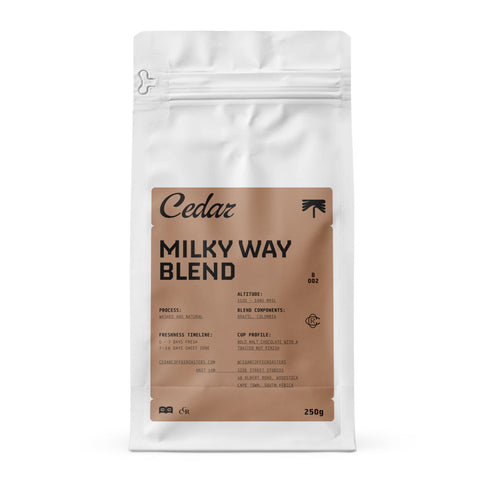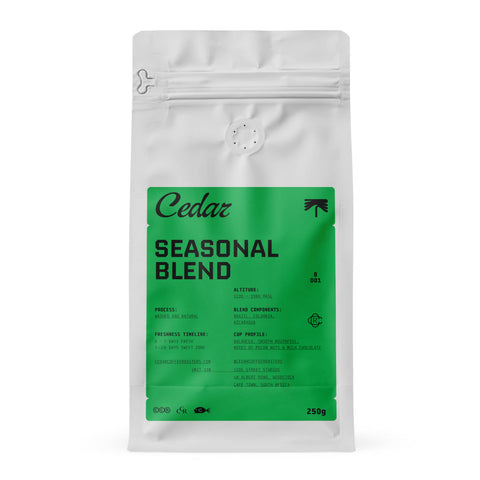
Cedar may be a relatively new brand, run by two relatively young guys, but it has some pretty impressive Cape Town coffee pedigree. We've known Leigh & Winston for many years. They each worked at one of the most respected roasteries in the country, and we had the privilege of being introduced to both of them at that stage in their careers.
Winston famously went on to become the South African Barista Champion, a few times over, and while Leigh is more of a behind the scenes guy, he played a significant role in a coffee business that has made a real mark on the industry, in South Africa & beyond.
We know and trust these guys, especially when it comes to specialty coffee, so when we found out that they were setting up a new roasting business together, it wasn't hard to decide to make it one of the first new brands we've taken on in quite a while. We know they're going to make an impact. Our first taste of their coffees confirmed our suspicions, and now you can taste the fruits of their labours too. We're pleased to offer Cedar's delicious coffees to our customers, anywhere in South Africa, and beyond. Find them all below.











